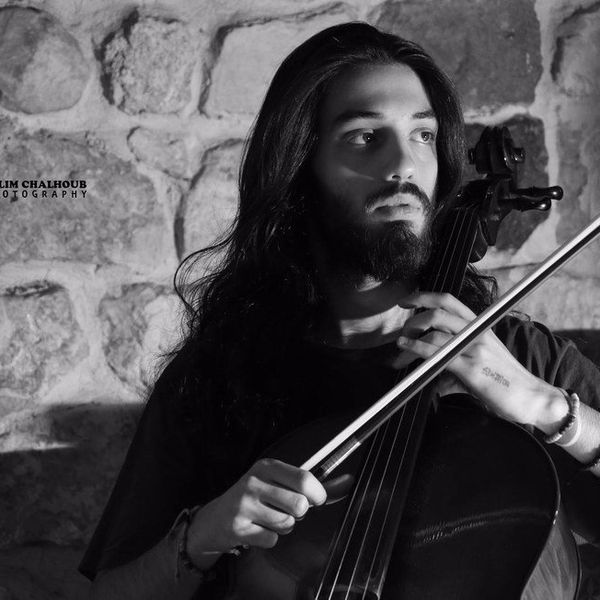If you’ve been keeping up with the war that Syria has been facing for the past five years, your heart has been breaking. Millions of Syrians have already fled the country to neighboring countries, trying to escape the government’s onslaught against its citizens. We honor their bravery, courage, and strength to travel over dangerous waters and land to safety as we watch, in horror, the short video clips that show what all they have endured.
While so many have been donating to support refugee camps and traveling over seas to lend a helping hand, we can’t even begin to relate to what they have been through, Even more so, we can’t imagine how much those who are still stuck in Syria are suffering. What is even more trivial is, who is voluntarily staying in such a country with treacherous prolonged incursion? They have been revealed as one of the most dedicated portion of society next to the military, people who feel as if it is their absolute duty, people who heal to preserve the delicacy of human life.
Earlier this week on NPR they had a segment interviewing Ben Taub, a journalist from the New Yorker who has done extensive research on Syria and the medical personnel that still reside there. The entirety of the segment was incredibly emotional and eye-opening, entailing the details of what medical personnel face there every day. Taub nailed the gritty, hard to hear details of the continuous tragedy in Syria, thoroughly discussing what trauma doctors in Syria are coming across, but also raising awareness towards the trauma that doctors themselves were withstanding.
Since March 2011, around 280,000 Syrians have been killed and included are the almost seven hundred medical personnel that have been assassinated, kidnapped, bombed, and tortured according to Physicians for Human Rights. In reference to Taub’s article, The Shadow Doctors, the United Nations Commission concluded that the Syrian government is intentionally and “deliberately targeting medical personnel to gain a military advantage,” stating that it was a matter of “government policy.” So far, 95 percent of doctors have escaped Syria, but it is the small 5 percent that have voluntarily dedicated themselves to staying, risking their lives to try and save hundreds of others.
Taub’s article re-described the tragedy surrounding Ali Al-Mahameed, a cardiologist who sacrificed his life to save others in the onset of the first attack in March 2011. He was shot in the head trying to save citizens in the crowd that were injured and dying and, when thousands showed up to his funeral, the funeral was attacked with hundreds of thousands more dead. That was only the beginning. With more and more attacks increasingly infringing upon the country, the need for hospitals and health care is tremendous. Much difficulty lies in that fact alone. With 95 percent of medical personnel gone, there are hardly enough doctors to cure that many injured.
To put things in perspective, in Aleppo, Syria, between January and March 2014 there were 50 to 75 war-related trauma cases a day with one medical personnel dying every other day. Currently in Aleppo, there are only 13 surgeons and 30 doctors to treat 300,000 patients. Prior to 2011 there were well over 2,000 medical workers. Now, there are only 4 primary health care facilities and five trauma clinics left with a total of 224 attacks on 175 medical facilities across Syria. Surgeons have even come out and straight forwardly admitted that if a patient’s surgery is going to take more than two hours, they have to let that person go because there are too many that need to be seen in such a short amount of time.
Health care facilities are being consistently attacked, In the first week of June of this year, three medical facilities, including a health care center for newborn babies, were all attacked in the short span of three hours, as well as three other trauma hospitals that were attacked by barrel bombs dropped by the government. Now, according the Physicians for Human rights, 47percent of Syria’s public hospitals and health centers are partially functional with little to no adequate resources to treat patients. The numbers are absolutely astounding in regard to the patient to medical care ratio, bringing light to the reality of such an abysmal situation.
Due to the brutality of the situation, many surgeons assist from afar now—at least that is what Dr. David Nott has been forced to do. After being under constant threat of abduction, he finally left the M1 hospital in Syria and now instructs others on how to repair certain injuries from a safe location by having images sent to him personally. Abu Waseem, one of his best students, was a fourth year plastic and reconstructive surgeon at the beginning of the war in 2011. He currently resides in Syria, serving the hospitals that still stand and has put aside his plans to further continue his residency and specialize. Although he is able to escape Syria, he has chosen not to, explaining that, “it is his duty,” as relayed by Taub during the NPR interview. Taub’s chilling article ends with the last conversation that Nott had with Waseem, stating that he was doing fine and entailed the details of his most recent patient, a young girl who lost her whole arm and face. After Dr. Nott asked if she was going to survive, he responded with, “unfortunately, yes.” Sadly this reflects what it has come down to. This is the kind of trauma he faces everyday. His eyes have seen things inconceivable, incredibly painful—and this is what is has come down to.
These doctors are warriors. They fight every day of their lives trying to save others with the high risk of being targeted, kidnapped, and murdered. Their daily regiment entails the same threat and purpose: treat patients, attack, find cover, wait for a cease-fire, reemerge, repeat—multiple times a day.
In conclusion, I end with this personal note. This article wasn’t supposed to be an easy read. I, myself, having thought about this extensively, planning how to articulate perfectly what I was trying to convey about the situation regarding doctors in Syria, had moments where it was hard to write because the magnitude of such a painful situation hit me so hard. The medical field being so dear to my heart makes the sacrifices that these doctors are making so real and vivid that I am in absolute awe of their strength, diligence, and perseverance. I pay my respects to the doctors in Syria who sacrifice so much daily—who, when given the opportunity to save their own life, instead decided to put theirs on hold to save others. I can only pray that God continues to work miracles through their hands and gives them the strength to carry on. I pray that God protects their eyes and hearts from the things that they have seen, things so unimaginable. I pray for their safety. I pray for their families. I pray for Syria.





















